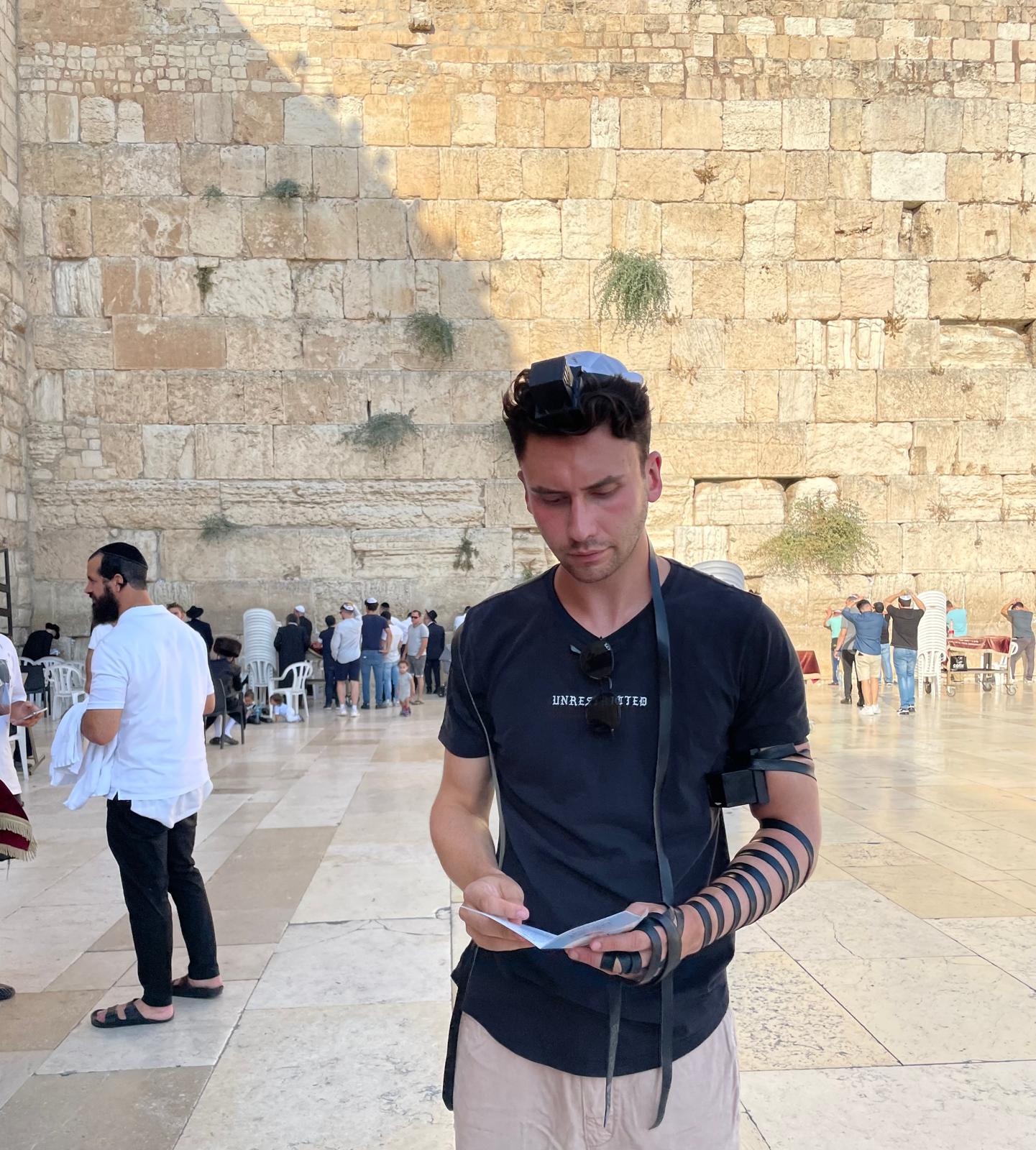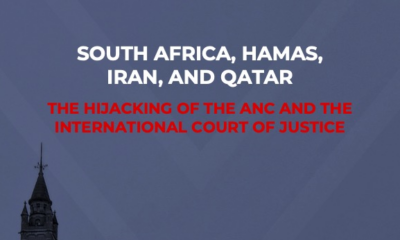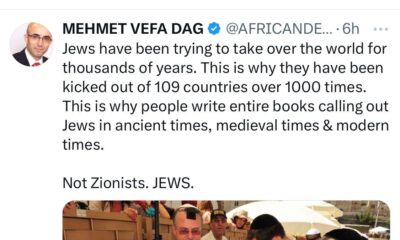
World

South African battles US student union over antisemitism
Jay Kaplan may now be studying at the University of Chicago (UChicago), but his strong Jewish identity emanating from growing up in Johannesburg led him to take on his virulently anti-Israel student union – and win his first battle.
This is just the beginning of Kaplan’s fight against an openly hostile environment that excludes anyone who doesn’t support an extremist anti-Israel position. He is working to ensure that no student who cares about Israel is discriminated against on American campuses.
“I’m thankfully at a less severely antisemitic school than many of my friends and colleagues, but no, I don’t feel comfortable,” he says. “Everywhere I go, there’s pro-Hamas propaganda. They have torn down our hostage posters. There are keffiyeh-clad students everywhere. When the encampment was up for about a week in early May, it was horrific. They barricaded the main quadrangle of the university, and blatant antisemitism abounded: ‘From the river to the sea’; ‘Resistance is justified’; ‘Globalise the intifada’, among other slogans.”
Born and raised in Johannesburg and having matriculated from King David High School Linksfield in 2018, “I started studying medicine at the University of Sydney in Australia in January 2019 before leaving to study at Princeton University in August 2019”, says Kaplan. “Here, I majored in chemical and biological engineering with minors in applied mathematics and computer science. I graduated from Princeton in May 2023 and began my PhD in molecular engineering at UChicago in September 2023.”
It was there that he first encountered the antisemitic hatred on campus, and it came from the very institution that was supposed to protect students. “Recently, in the United States, graduate students, who are paid a stipend, began to unionise to increase wages and improve working conditions,” he says. “UChicago unionised at the end of last year. As a requirement for our employment, we were now obligated to join the union and pay dues, or not join but pay equivalent agency fees.
“The union immediately put forward a vote supporting the Boycott, Divestment, Sanctions [BDS] coalition even before 7 October. After 7 October, it began regularly posting Students for a JustPalestine [SJP] propaganda and other antisemitic vitriol. When the pro-Hamas encampments began, it emailed us supporting the encampment. I immediately reached out to our union representatives, requesting that they withdraw support from SJP and BDS. I said that if they didn’t, I, and other Jewish students, would refuse to pay our agency dues. They responded aggressively, saying that our positions at UChicago would be terminated if we failed to pay.”
But Kaplan wasn’t deterred. He reached out to the National Right to Work Legal Defense Foundation, which had fought the same case against the same union at MITand won. “We put together a letter to university administration and the union requesting a religious accommodation under Title VII of the US Civil Rights Act, which states that if a workplace or union violates your religious beliefs, you are exempt from paying fees and can divert these funds to a non-religious, non-profit charity. It has since accepted our religious exemption, and we’re now pushing it to allow us to donate to Magen David Adom as the charity of our choice, which it is pushing back on.
“I have since helped other Jewish students file their own exemptions,” says Kaplan. “However, other students that aren’t Jewish and don’t wish to associate with the SJP or pro-Hamas sentiments are unable to leverage the religious exemption.”
As such “a group of law students, with the help of a top US law firm, Jones Day, filed a lawsuit against the union claiming that it violated their first amendment rights by forcing association with an ideological organisation”.
Kaplan has been assisting with the case. “I’ve also connected Jewish students at other universities with the plaintiffs of the case, and other schools are now planning to file similar suits. Should this lawsuit succeed, the union will be unable to enforce agency fees on anyone, allowing all those opposed to the anti-Israel and antisemitic rhetoric to avoid paying them a dime, as well as potentially receiving compensation for the plaintiffs.”
Back in May, when Kaplan entered the encampment at his university wearing his hostage dog tag, “I was immediately followed by an older woman who began recording me. I felt comfortable walking through the encampment only because there were campus police officers just outside. Later that week, they took down the US flag and raised the Palestinian flag. I went to take photos and was blocked by members of the encampment. I took photos over their heads, while other pro-Palestinians took photos of me. There was also a list circulating on campus of ‘known Zionists’ that I was on.
“Our pro-Israel group, Maroons for Israel, put up a pro-Israel exhibit with flags and posters, all of which were torn down and destroyed every night by the encampment people. The university police saw it happening and did nothing. It was told not to escalate matters as it watched our authorised exhibit get destroyed by masked terrorist sympathisers.”
Kaplan also spearheaded a group that planned and raised more than $30 000 (R551 121) to put up a display of the 7 October massacre across from the encampment. However, “the university took down the encampment at 04:00 the morning our exhibit was going up, and we decided to hold onto the funding to use in the fall [autumn] should they return”.
He emphasises that he isn’t the only one taking on this fight. “James Hirschowitz, another King Davidian doing his undergraduate degree at Berkeley, has filed a discrimination suit against the school, along with some other students.”
Kaplan has lost many friends “and people I have never even spoken to glare at me because they know I’m a Zionist – by word of mouth or my dog tag. These are just some of the disgusting experiences I have had on a college campus, and these are just my stories. There are countless other horrific stories, and this is nothing compared with the humanities departments at Columbia or Berkeley.”
Meanwhile, the US Senate Committee on Health, Education, Labor, and Pensions is investigating unions for antisemitism, and Kaplan was asked to speak to Republican senate aides about his experience. “We’re waiting to hear back from the committee,” he says. “Nowhere near enough is being done to combat rising anti-Israel rhetoric and antisemitism on US campuses. These students have violated codes of conduct with minimal to no penalties. It’s a glaring double standard with no repercussions.
“I truly worry about Israel’s place in the future of academia,” he says. “If these militant students continue, universities may succumb to pressure and sever ties. Even more worrying is that these useful idiots may someday be in positions to make these decisions.
“Unfortunately, very little can be done from abroad to support US Jewish students,” he says. “If anyone wants to reach out, they are more than welcome. A big thing is the ‘apartheid’ accusation, so the generation of more material from South Africans combatting this would be useful. Regarding South Africa, it must be difficult living in a country with a Hamas office and a government that prosecutes Israel and South African Israel Defense Forces soldiers, so keep fighting the good fight.”











Gary
August 1, 2024 at 3:59 pm
We will always stand by Israel no matter what they do to us, Am Yisrael Chai and perish all who hate Zion.